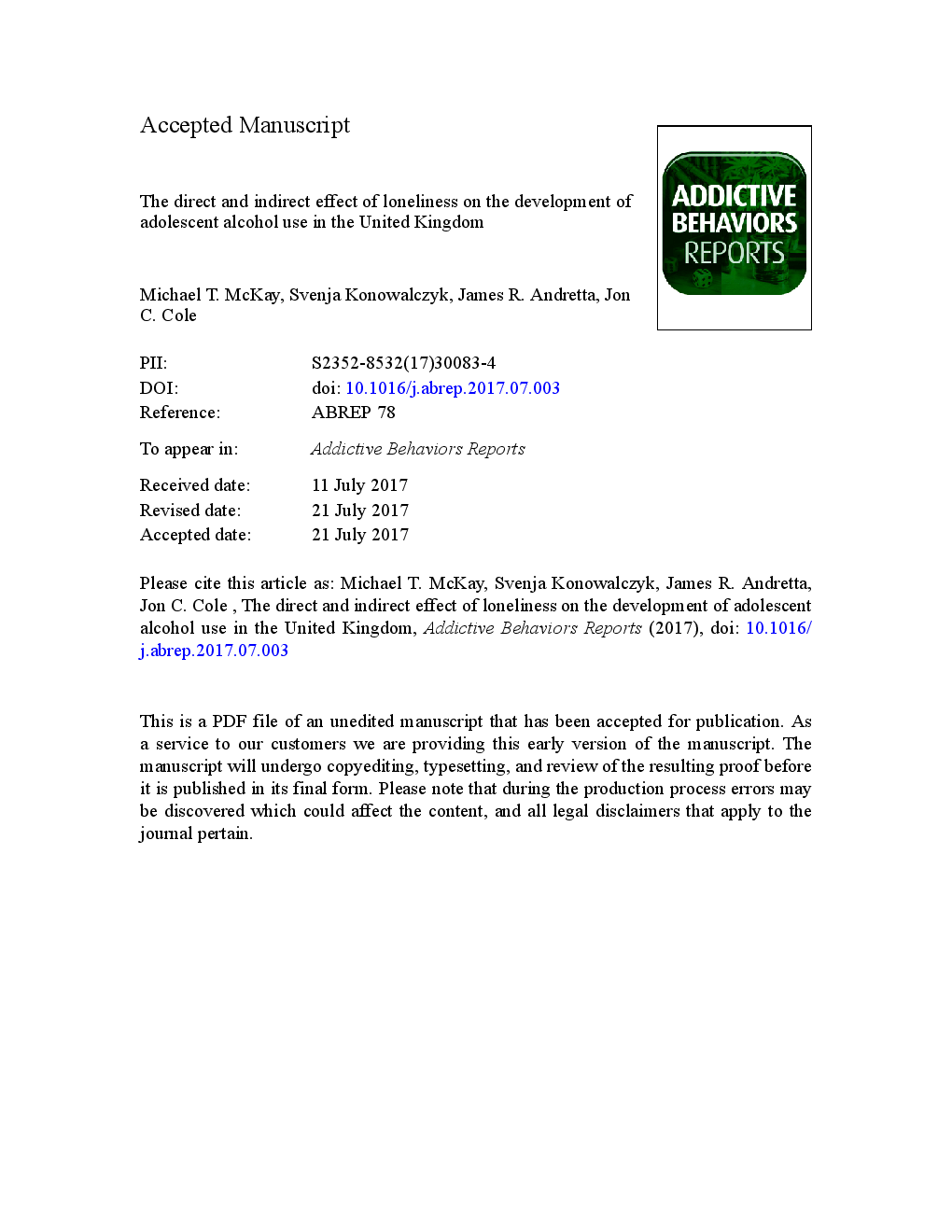ترجمه فارسی عنوان مقاله
اثر مستقیم و غیرمستقیم تنهایی بر توسعه مصرف الکل نوجوانان در انگلستان
عنوان انگلیسی
The direct and indirect effect of loneliness on the development of adolescent alcohol use in the United Kingdom
| کد مقاله | سال انتشار | تعداد صفحات مقاله انگلیسی |
|---|---|---|
| 122551 | 2017 | 28 صفحه PDF |
منبع

Publisher : Elsevier - Science Direct (الزویر - ساینس دایرکت)
Journal : Addictive Behaviors Reports, Volume 6, December 2017, Pages 65-70
ترجمه کلمات کلیدی
تنهایی، خود کارآمدی، تماشای احساس، استفاده از الکل نوجوانان، اثرات غیر مستقیم،
کلمات کلیدی انگلیسی
Loneliness; Self-efficacy; Sensation seeking; Adolescent alcohol use; Indirect effects;

